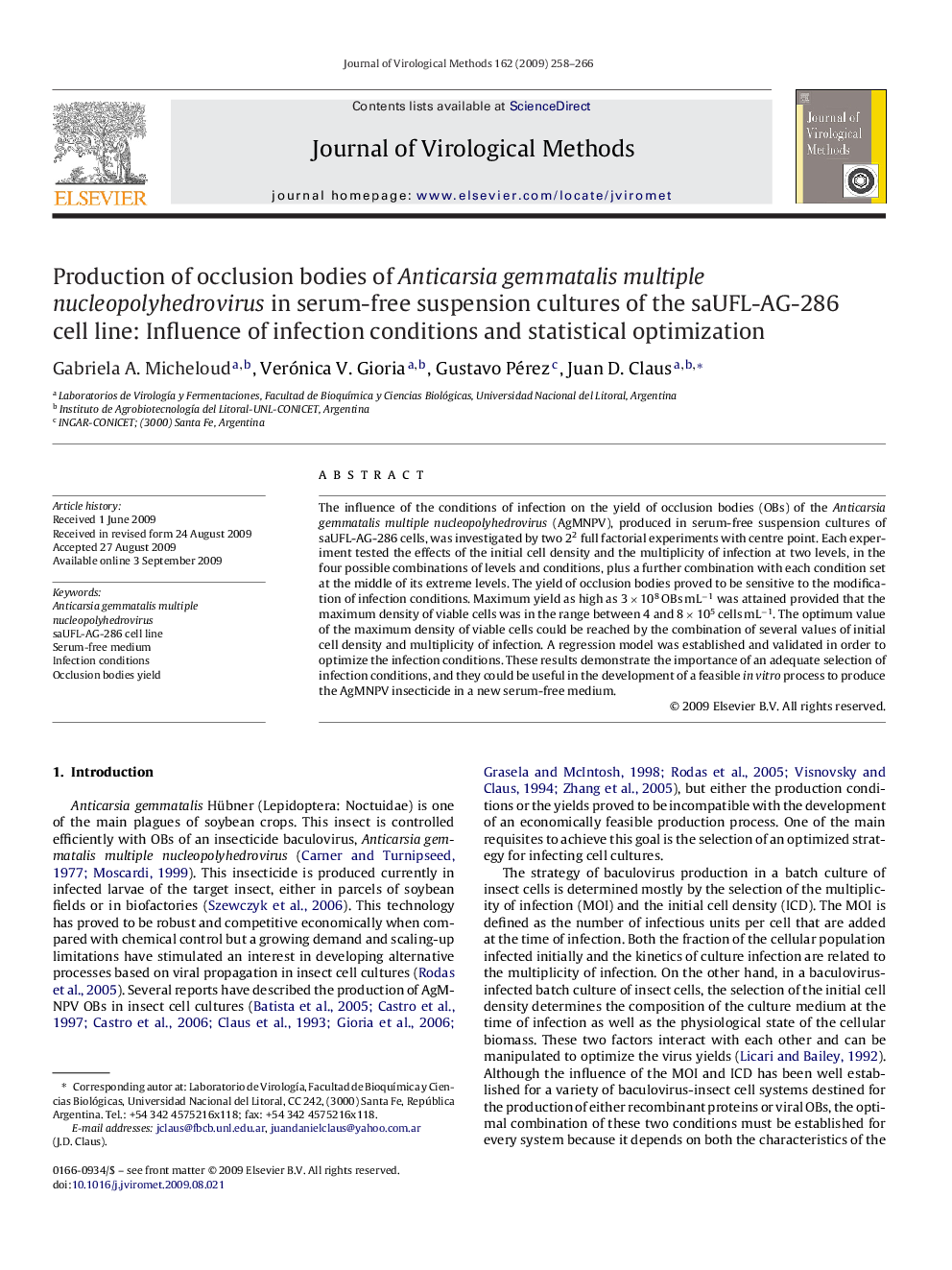| Article ID | Journal | Published Year | Pages | File Type |
|---|---|---|---|---|
| 3407246 | Journal of Virological Methods | 2009 | 9 Pages |
The influence of the conditions of infection on the yield of occlusion bodies (OBs) of the Anticarsia gemmatalis multiple nucleopolyhedrovirus (AgMNPV), produced in serum-free suspension cultures of saUFL-AG-286 cells, was investigated by two 22 full factorial experiments with centre point. Each experiment tested the effects of the initial cell density and the multiplicity of infection at two levels, in the four possible combinations of levels and conditions, plus a further combination with each condition set at the middle of its extreme levels. The yield of occlusion bodies proved to be sensitive to the modification of infection conditions. Maximum yield as high as 3 × 108 OBs mL−1 was attained provided that the maximum density of viable cells was in the range between 4 and 8 × 105 cells mL−1. The optimum value of the maximum density of viable cells could be reached by the combination of several values of initial cell density and multiplicity of infection. A regression model was established and validated in order to optimize the infection conditions. These results demonstrate the importance of an adequate selection of infection conditions, and they could be useful in the development of a feasible in vitro process to produce the AgMNPV insecticide in a new serum-free medium.
